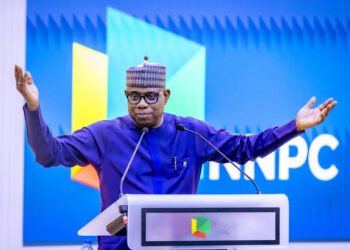Minister of State for Petroleum Ibe Kachikwu has disclosed that the Federal Government will reappraise the Nigerian National Petroleum Corporation (NNPCs) $ 6 billion crude oil swap agreement. Nigeria was last month thrown into a severe fuel scarcity, which President Muhammadu Buhari blamed on saboteurs. The President also vowed to get to the root of the matter, and prevent a reoccurrence.
What is the crude oil swap agreement about ?
Under the agreement, the NNPC provides monthly crude oil lifting in return for the delivery and supply of Nigerian standard specification of petroleum products equivalent in value to the Crude Oil received from NNPC subject to general terms and conditions as would be advised in the term sheet. The DSDP agreement replaces the previous subsidy regime which was marred by fraud and irregularities.
Why the swap agreement failed
Kachikwu also revealed that the agreement failed due to the inability of some operators to deliver petrol and bringing in diesel instead.
A lot of people who took the DSDP programme to deliver products failed in their deadlines – some for profiteering reasons, some for just sheer lack of capacity.
The long term solutions according to him, were for the NNPC and other marketers to bring their products, and Nigeria’s refining capacity to be improved. In addition, Kachikwu also suggested that he would consider tax relief options for some of the importers.
A price increase may inevitable
As admirable as the solutions suggested by Kachikwu are, they do not address the core of the issue. The government has to deregulate the petroleum sector and allow importers to bring in products, and sell at a profitable price. The much hoped on refineries may not focus on supplying the domestic market if pump prices are still being regulated. The NNPC also has its fair share of blame. Why would it award contracts to operators without the required capacity ?





















